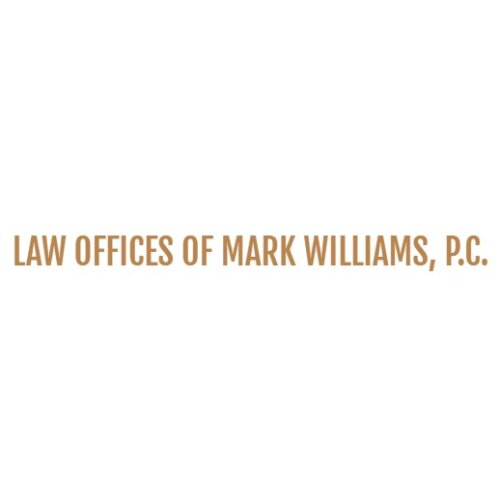Best Energy, Environment & ESG Lawyers in Guam
Share your needs with us, get contacted by law firms.
Free. Takes 2 min.
Or refine your search by selecting a city:
List of the best lawyers in Guam
About Energy, Environment & ESG Law in Guam
Energy, Environment & ESG (Environmental, Social, and Governance) law in Guam focuses on regulations and best practices involving natural resources, energy use, environmental protection, and corporate responsibility. Guam’s unique geographic location and status as a U.S. territory influence local policies, as the island faces growing challenges related to sustainability, climate change, natural resource management, and economic development. These laws are designed to protect Guam’s environment and communities while aligning businesses and governmental activities with established ethical and legal standards.
Why You May Need a Lawyer
There are many situations where legal assistance in the area of Energy, Environment & ESG in Guam is crucial. For individuals, businesses, or organizations, some frequent scenarios include:
- Starting construction or development projects that affect natural resources or ecosystems
- Navigating environmental permit applications and compliance with regulations
- Challenging or responding to environmental violations or enforcement actions
- Dealing with land use, zoning, or hazardous waste management issues
- Seeking guidance on renewable energy projects or energy efficiency upgrades
- Ensuring business practices align with ESG criteria for investment or reputation purposes
- Responding to environmental accidents, spills, or natural disasters that have legal consequences
- Participating in public hearings or consultations on environmental impact assessments
- Handling disputes involving water use, air quality, land rights, or marine resources
- Ensuring compliance with federal and local reporting obligations on environmental matters
A lawyer experienced in these fields can help clients navigate complicated regulations, understand their rights and responsibilities, and avoid costly mistakes or penalties.
Local Laws Overview
Guam's laws and regulations regarding Energy, Environment & ESG draw from both local statutes and federal laws, since Guam is an unincorporated territory of the United States. Key aspects include:
- Environmental Protection Act of Guam - Governs activities related to air, water, and soil pollution control, hazardous waste management, and conservation of renewable resources.
- Guam Environmental Protection Agency (GEPA) - The main regulatory body that enforces local and certain federal environmental laws, including permitting and monitoring.
- Land Use and Zoning Regulations - Set by the Department of Land Management, these rules regulate how land is developed and conserved to protect the island’s unique habitats.
- Energy Regulation - The Guam Public Utilities Commission oversees the Guam Power Authority and related energy utilities, promoting reliable and sustainable energy while regulating rates and ensuring compliance with renewable energy targets.
- Coastal and Marine Resource Protection - Protects coral reefs, coastal areas, and marine life through rules around fishing, coastal development, and pollution prevention.
- Federal Laws - Laws such as the Clean Air Act, Clean Water Act, and National Environmental Policy Act, as well as military-related environmental regulations, often apply in Guam due to its territorial status.
- ESG Initiatives - While not always mandated, public and private entities in Guam increasingly adopt ESG standards to meet regulatory expectations and stakeholder demands.
Frequently Asked Questions
What is ESG, and why does it matter in Guam?
ESG stands for Environmental, Social, and Governance. ESG principles guide organizations in operating responsibly regarding the environment, fair labor, community engagement, and transparent management. In Guam, ESG matters because of environmental sensitivity, cultural values, and growing investor and public demand for responsible practices.
Do I need a special permit to develop land near the coast?
Yes, coastal and marine resource areas are protected, and developing land near the coast often requires permits from local agencies like the Department of Land Management and the Guam Environmental Protection Agency. Your project may also need an environmental impact assessment.
Are there incentives for renewable energy in Guam?
Yes, Guam has initiatives and incentives to promote renewable energy use, including net metering for residential solar power, grants, and financing programs for energy efficiency upgrades. These are managed by agencies like the Guam Power Authority.
Which agency regulates environmental protection in Guam?
The primary agency is the Guam Environmental Protection Agency (GEPA). GEPA oversees compliance with local environmental laws and certain federal regulations, handling permitting, inspections, enforcement, and education.
Can federal environmental laws apply in Guam?
Yes, most major federal environmental laws apply in Guam. This includes statutes such as the Clean Air Act, the Clean Water Act, the Resource Conservation and Recovery Act, and others, often administered in cooperation with local agencies.
What should I do if I receive a notice of environmental violation?
You should take such notices seriously. Contact an attorney with experience in environmental law immediately. Responding properly and promptly can minimize fines, prevent escalation, and clarify your legal options.
How does Guam handle hazardous waste?
Guam has specific regulations for the transportation, storage, treatment, and disposal of hazardous waste. Both local rules and federal Resource Conservation and Recovery Act requirements apply to ensure public safety and environmental protection.
What is an environmental impact statement, and is it required?
An environmental impact statement (EIS) is a detailed study assessing the potential effects of a proposed project on the environment. Many public and private projects in Guam, especially larger developments, require an EIS before proceeding.
Who do I contact for concerns about water quality or illegal dumping?
You can contact the Guam Environmental Protection Agency, which investigates complaints related to water pollution, illegal dumping, and similar environmental violations. They have enforcement authority and may coordinate with local or federal bodies as needed.
Are policies for corporate social responsibility (CSR) and ESG mandatory?
Some ESG standards are voluntary but increasingly expected by investors, customers, and regulators. Certain activities, such as environmental reporting and anti-corruption, may be mandated depending on the nature and scale of your operations.
Additional Resources
- Guam Environmental Protection Agency (GEPA)
- Guam Department of Land Management
- Guam Public Utilities Commission
- Guam Power Authority
- Guam Coastal Management Program
- University of Guam - Center for Island Sustainability
- Guam Contractors Association
- Federal agencies such as the U.S. Environmental Protection Agency
- Nonprofit organizations focused on Guam’s environment and conservation
Next Steps
If you need legal assistance in Energy, Environment & ESG matters in Guam, consider taking the following steps:
- Identify the specific issue or question you have, and gather any relevant documents or notices
- Consult with a qualified attorney who has experience in Guam’s energy, environmental, or land use laws
- Contact related agencies for initial information, but avoid making formal responses or agreements without legal guidance
- Ask for an initial consultation to better understand your rights, responsibilities, and options
- Continue to monitor changes in local and federal regulations, especially if you are a business or developer
- Use community organizations, university programs, and professional associations as additional sources of information and support
Legal counsel can provide the support you need to navigate regulations, protect your interests, and promote sustainable and responsible practices in Guam.
Lawzana helps you find the best lawyers and law firms in Guam through a curated and pre-screened list of qualified legal professionals. Our platform offers rankings and detailed profiles of attorneys and law firms, allowing you to compare based on practice areas, including Energy, Environment & ESG, experience, and client feedback.
Each profile includes a description of the firm's areas of practice, client reviews, team members and partners, year of establishment, spoken languages, office locations, contact information, social media presence, and any published articles or resources. Most firms on our platform speak English and are experienced in both local and international legal matters.
Get a quote from top-rated law firms in Guam — quickly, securely, and without unnecessary hassle.
Disclaimer:
The information provided on this page is for general informational purposes only and does not constitute legal advice. While we strive to ensure the accuracy and relevance of the content, legal information may change over time, and interpretations of the law can vary. You should always consult with a qualified legal professional for advice specific to your situation.
We disclaim all liability for actions taken or not taken based on the content of this page. If you believe any information is incorrect or outdated, please contact us, and we will review and update it where appropriate.
Browse energy, environment & esg law firms by service in Guam
Guam Attorneys in related practice areas.
Browse energy, environment & esg law firms by city in Guam
Refine your search by selecting a city.










